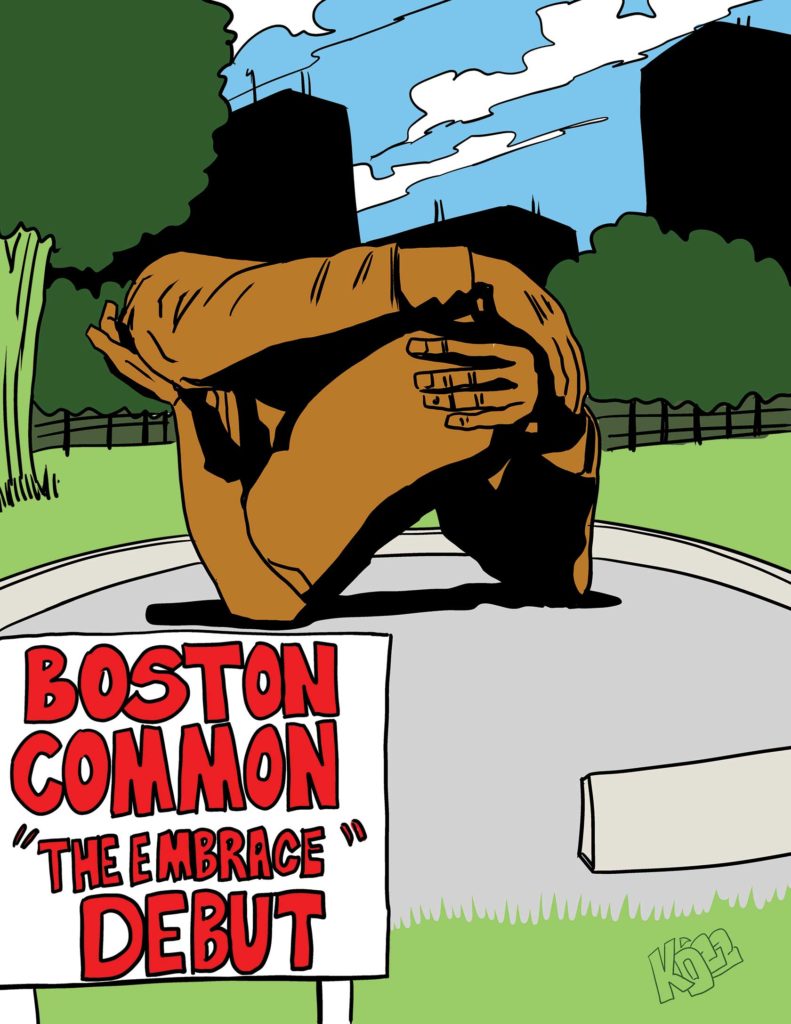
Martin Luther King Jr.’s achievements were so significant for the welfare of humanity that most people lose sight of how short his life was. He was assassinated at the age of 39. Although he was a son of Georgia, Dr. King spent many of his adult years in Boston. It is appropriate to create a monument here in commemoration of King’s great sacrifice and benefaction for the attainment of human solidarity in the City on a Hill.
As a graduate of Morehouse College, MLK came to Boston to acquire a Ph.D. from Boston Unviersity School of Theology. This was a time when major colleges were reluctant to admit Blacks at all, and the white colleges in the South were closed to Black students. There has been such a change in these policies since those days, young Blacks can hardly imagine such a time.
After joining the Alpha Phi Alpha fraternity in Boston in 1952, MLK enjoyed the association of other Black intellectuals in a city that was devoid of petty segregation and discrimination. He became motivated by the work of India’s Mahatma Gandhi, who had died a few years earlier, to spread the ministry of love and compassion to all humanity.
King’s vision was very persuasive. He convinced Boston University to establish library access to his papers and relevant documents. Then MLK knew it was time to take direct action. In 1955, after attaining his Ph.D., MLK led a group of supporters to launch a non-violent campaign in support of the Montgomery Bus Boycott. This was essentially the beginning of the “Civil Rights Campaign.”
The late Boston filmmaker Henry Hampton, who was executive producer of Blackside, Inc., understood that MLK had launched what many hoped would be the final battle to attain civil rights for Blacks. Hampton’s film “Eyes on the Prize” captures an accurate account of the effort. The Civil Rights Act became law in 1964 and Martin Luther King Jr. was awarded the Nobel Peace Prize that year.
This achievement still left unsatisfied issues. MLK turned his attention to Black poverty and how the nation’s economic system had impaired Black affluence. While complaints about civil rights were tolerable, conservatives would not peaceably endure protest against an economic policy that made them rich. MLK’s leadership in the Poor People’s Campaign brought a fatal response.
All Bostonians should know that Martin Luther King Jr. is a national hero and Boston was a significant place to aid and publicize his efforts. “The Embrace” statue is an appropriate historical acknowledgement of Boston’s involvement.


![Banner [Virtual] Art Gallery](https://baystatebanner.com/wp-content/uploads/2024/04/Cagen-Luse_Men-at-store-e1713991226112-150x150.jpg)



